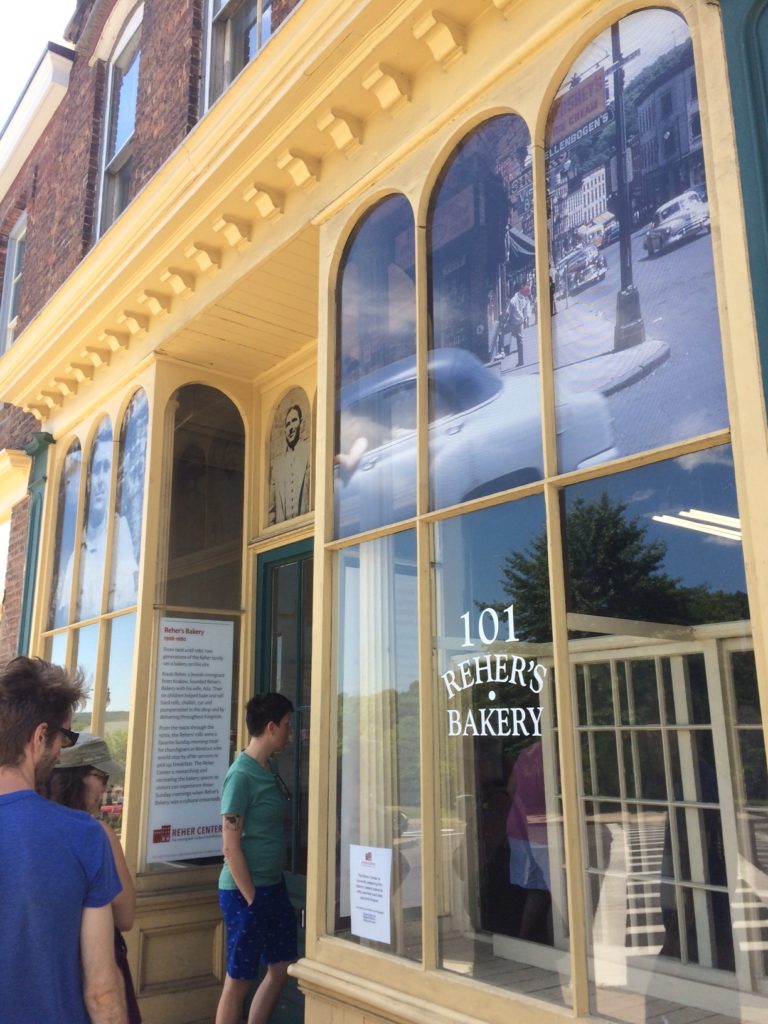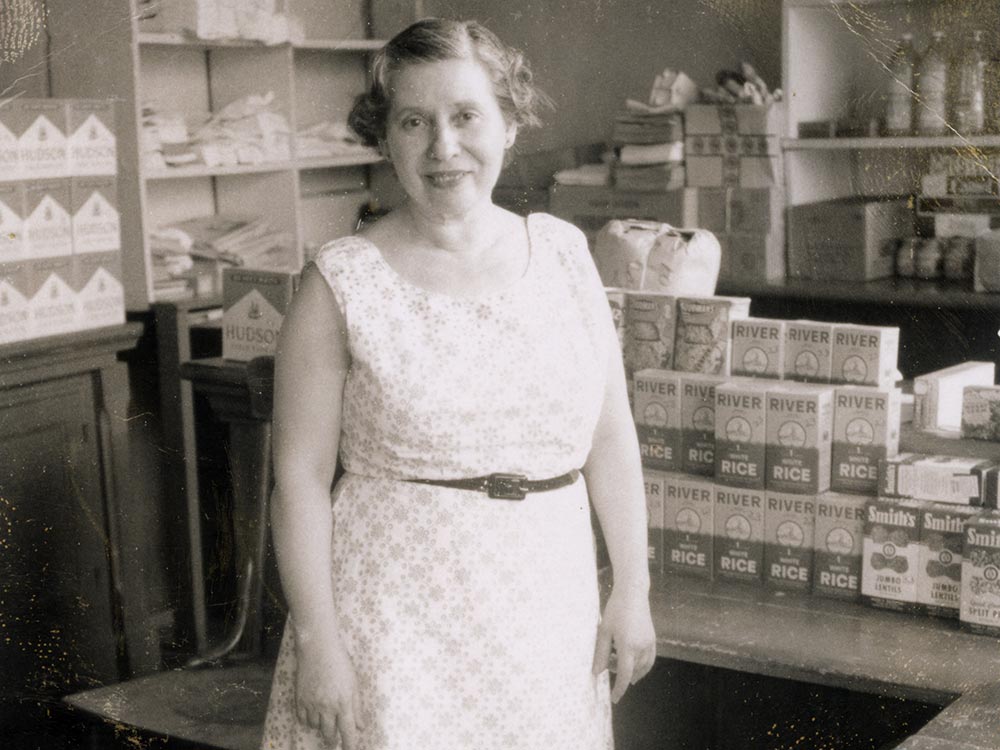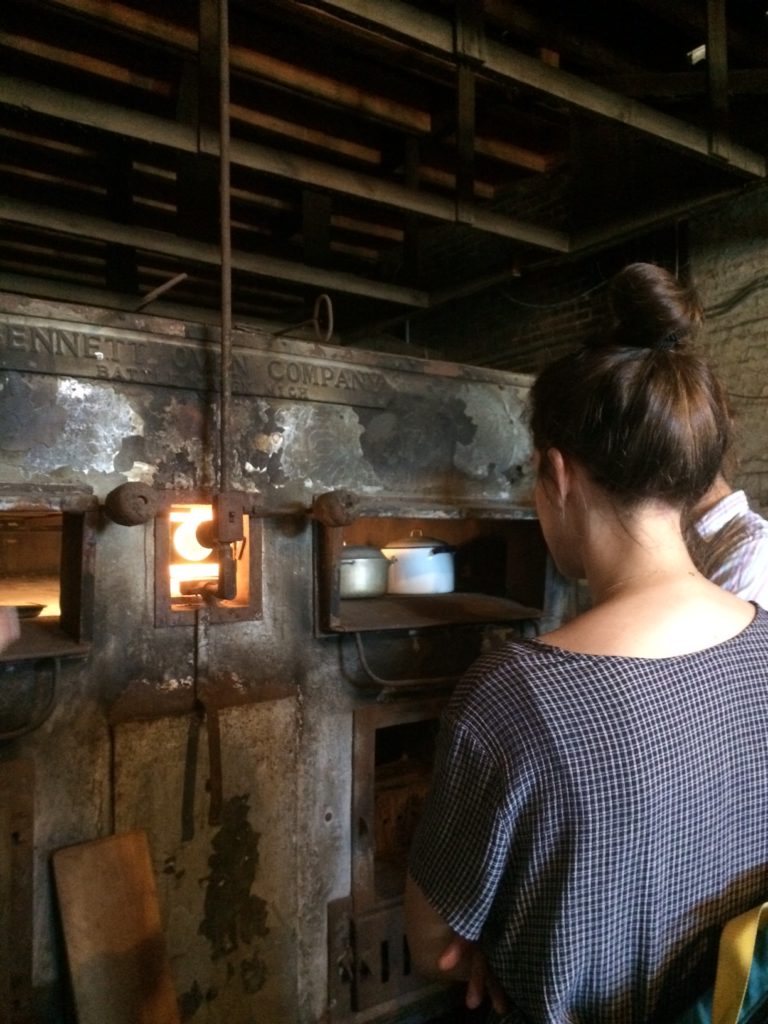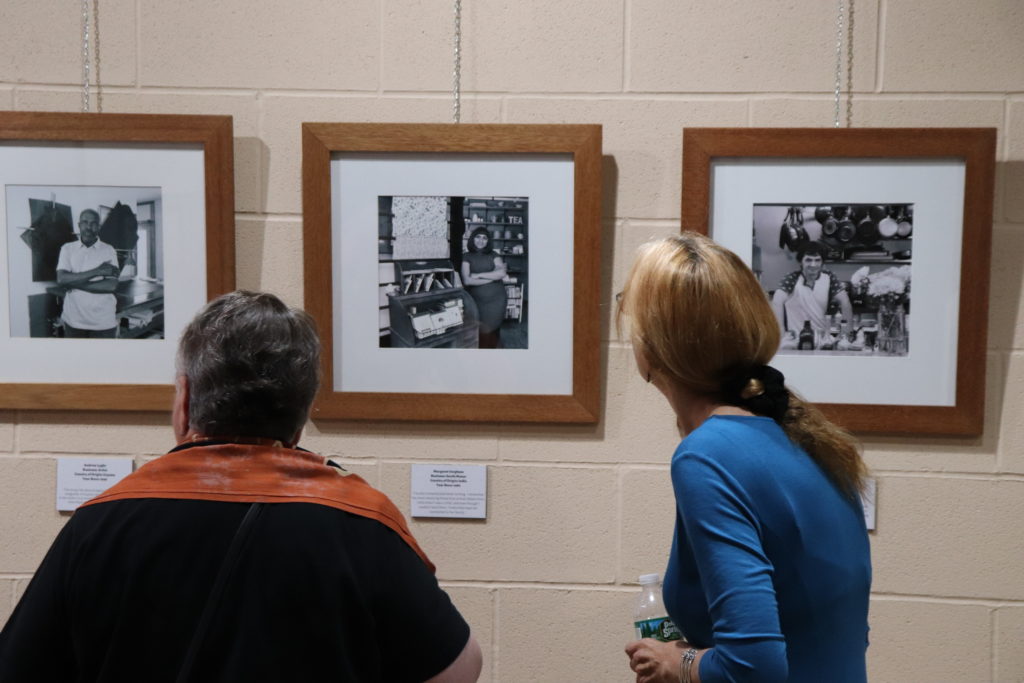Blog Archive, Great Reads
New Immigrant History Museum Opening in the Hudson Valley
It’s not often you get to see inside of a museum before its official opening. But if you travel up the Hudson River this summer to Kingston, New York, you have the chance to experience a museum’s beginnings. The Reher Center for Immigrant Culture and History, located on Kingston’s Broadway in the neighborhood of Rondout, interprets the immigrant stories of the Hudson Valley through a historic bakery building once owned by the Reher family. Sound familiar? This site shares many characteristics with what we do at the Tenement Museum—they tell stories of a neighborhood and family history and recognize the incredible potential in connecting visitors and residents in Kingston today to the stories of immigrants past.

The Reher Center is housed in a former bakery building at 99-101 Broadway, Kingston, New York
On a bright Saturday morning, a few of us gathered for a preview tour of the Center’s historic bakery building. The three-story building sits on a corner of the main commercial street in Rondout, lined with cafes and shops, just a few blocks up a hill from the Hudson. Director Sarah Litvin met us outside, and traced for us the evolution of the Rondout neighborhood from farmland to a shipping hub in the early 19th Century, to a bustling, diverse neighborhood of working class immigrants from Europe. Immigrants like the Reher family settled in Rondout, moving from Krakow, Poland, to New York City, and then to Kingston. Why did they make the move up the river? With neighborhoods like the Lower East Side so crowded, and housing so uncertain, immigrant families in the late 19th Century might seek better jobs and housing in cities further up the Hudson, as they often do today.
The Rehers opened a bakery on the bottom floor of the building in 1908, and Litvin opened up the tour with a taste of rye bread for each of us, inviting us to break bread as countless Rondout residents had before. Our rye bread came from Graziano’s Downtown Café a few doors down, but we could easily imagine we had just bought it fresh from Frank and Ada Reher. Frank and Ada were both Jewish, so many of their customers came for their challah just before the Friday Sabbath, but their busiest day by far was Sunday, when churchgoers would stop by after services alongside their Jewish neighbors.

Sadie Reher ran the counter of the bakery and store in the mid-20th Century
Litvin brought us into the former retail shop and focused the stories of these Sundays, particularly the ones in the 1950s. By the middle of the 20th Century, the bakery became a corner store as well, selling canned and dry goods, groceries, and other staples. The neighborhood was also on the precipice of “urban renewal,” the same demolition of buildings to build freeways and new housing that the Lower East Side experienced in the same period.
“What are your memories of this place?” The Reher Center wants to know about the bakery from the stories of the people who went there; they asked neighbors, family members, and residents of Kingston what they recalled about the family and their store. People shared stories of Sunday deliveries of the Reher’s famous hard rolls, of going there to buy a pack of cigarettes and getting swept up in the neighborhood news exchange. One woman talked of the ritual of leaving money on the kitchen counter every week and arriving home to a fresh-baked loaf of rye bread in its place; another, of the “Reher’s Rocks” that would form if you left the rolls overnight.

The Reher family baked rolls, challah, and rye bread in this 1916 coal-powered oven
As we stood along the smooth wooden counter, we listened to these memories from the people themselves, thanks to recorded oral histories. Litvin revealed the Center’s research and preservation work: they found artifacts like the Sunday List, detailing customers’ orders for delivery; bakery trays that revealed the same pattern of dough laid out every week, and the centerpiece of the baking room: a 72-loaf oven from 1916.
The Reher Center’s upstairs gallery, open on Saturdays through the summer, invites visitors into an exhibit on the wider history of Rondout, and connects past to present with stories and photographs of the immigrant business owners of Rondout today. They will continue research and restoration through the year, while developing programs that connect visitors and locals to the rich, multi-cultural baking traditions of Kingston today.

The exhibit on the second floor of the Reher Center features a photo series of immigrant business owners in Kingston today
While the building is smaller than 97 Orchard Street, and the city slightly smaller too, the Reher Center’s historic site is baked from the same recipe as the Tenement Museum: share a building’s stories, past and present, and open the doors to all.
For more information, visit https://www.rehercenter.org
- Post by Kathryn Lloyd, Director of Programs at the Tenement Museum